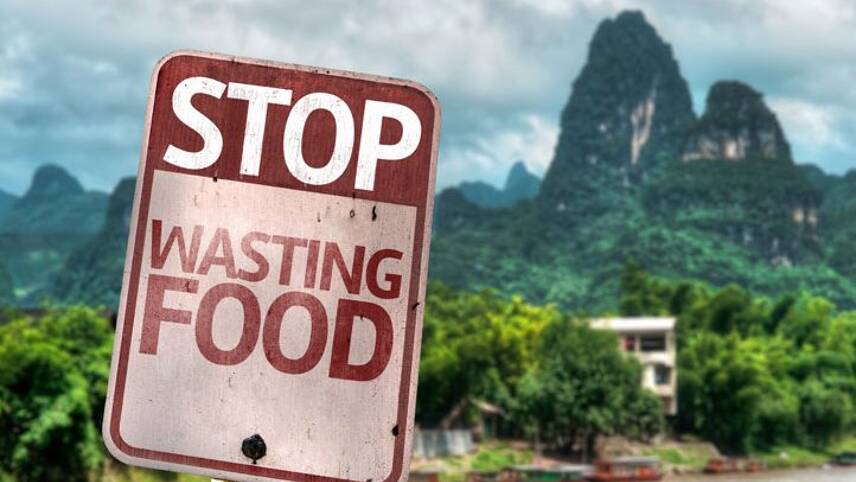Register for free and continue reading
Join our growing army of changemakers and get unlimited access to our premium content

It’s hard to fathom a figure as gargantuan as that. It feels like someone else’s problem. Unless that is you break it down, make it more manageable and personalise it. As we discovered, here at the Sustainable Restaurant Association, running the most in-depth, detailed study of food waste in UK restaurants, FoodSave from 2013-2015, it’s only when operators look at the cold hard data relating to their own business, that they respond. Looking at the contents of your own bin can be both revealing and prove something of a Damascene moment.
So, when you take foodservice’s million tonne, £2.5bn food waste mountain and isolate it to individual sites, you’re looking at £19,000 hit to the bottom line. What’s more, all the research indicates that 75% of that waste is avoidable. That’s why during November, as part of our Waste No Food campaign, we’ll be sharing DIY food waste audits, toolkits and resources, inspiring case studies from businesses laying foundations for the future by making food waste history, as well as top tips and insights from a whole host of partners, including fellow campaigners, organisations making it easy to match restaurants’ surplus food with some of the millions of people who can’t afford to feed themselves and some of the very best waste contractors. There’s a tailor-made solution for every foodservice business no matter whether they are food waste first-timers or fanatics.
More than 80% of SRA Members surveyed now separate their food waste – the first step to understanding the scale of the challenge which doubles as the best way of ensuring it doesn’t end up in landfill. That leaves 20% of businesses who are still throwing out their food with the general waste and we’re pretty sure that number is higher across the sector. So, step one, for the binginners is to separate. Food waste bins generally cost half as much as general waste – a big bonus bite out of the bottom line.
If those seem like baby steps to you, then stop for a moment to ask yourself if you have a really clear picture of what food you’re wasting and why. If you can’t answer those simple questions, the likelihood is that you aren’t measuring and monitoring your food waste – the second essential step to helping you smash this problem and ensure more food goes on the plate and gets eaten.
And for those of you sitting there feeling pretty pleased with yourselves because you’re separating, measuring and monitoring your waste, remember what comes after pride. Even the very top foodservice businesses, despite the best planning, can end up with at least some leftover or surplus food. A vast network of organisations has sprung up in recent years matching surplus food with hungry people and we’ve compiled a list of the best with a description of how you can link with them.
As with all our campaigns, don’t just take it from us, listen to, learn from and be inspired by the frontrunners – the best in the business. We’ve spoken to the high street giants like Pizza Hut Restaurants who are hitting food waste head-on with a range of measures, including all our three golden ones, as well as working closely with their waste contractor to improve collection services for the whole industry. Caterer bartlett mitchell has proved that you don’t need to invest in pricey tech to measure and monitor to good effect – so long as you engage your chefs in the process too. Another caterer, Vacherin, is fighting food waste higher up the food chain, putting so-called Wonky Veg to great use across its dozens of B&I sites in the capital.
Among the most inspiring stories comes from the world of football. A sous chef at Arsenal’s Emirates stadium has cut through the red tape and found a way of getting food that doesn’t get eaten on match days to the homeless and vulnerable of north London, working with City Harvest.
And for a fine dining take, we hear from Skye Gyngell on how she and her team at Spring hit on the idea of creating a £20 three-course dinner menu comprised of ingredients that would otherwise fetch up in the trash – including, amazingly, cake baked with flour that’s been re-milled from yesterday’s bread and yoghurt and cheese made with milk leftover from the coffee-making process.
Binspired to be part of #WasteWatchers? Come visit our campaign website, and look forward to a future of empty food waste bins, significant savings and even more creative and motivated chefs.



Please login or Register to leave a comment.